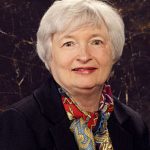At its most recent meeting, the Federal Open Market Committee (Fed) neither adjusted the federal funds target rate nor indicated an adjustment in the immediate future. In a statement released following its July 25-26, 2017 gathering, it stated:
In view of realized and expected labor market conditions and inflation, the Committee decided to maintain the target range for the federal funds rate at 1 to 1-1/4 percent… In determining the timing and size of future adjustments to the target range for the federal funds rate, the Committee will assess realized and expected economic conditions relative to its objectives of maximum employment and two percent inflation. This assessment will take into account a wide range of information, including measures of labor market conditions, indicators of inflation pressures and inflation expectations, and readings on financial and international developments.
Economy watchers are paying close attention to recent events in the US which may have a significant impact on the US economy and, potentially, the federal funds rate. They speculate what this may mean for the Fed’s next gathering on September 16. Fed chair Janet Yellen failed to comment on monetary policy during her speech at a summit of central bankers in Jackson Hole, Wyoming on August 25 at the very same time as Houston, Texas was being pummeled by Hurricane Harvey. Economists are speculating as to what these two unrelated events will have on the US economy in the short and long-term. Both events sparked a weakening of the US dollar and a subdued stock market in the days following.
Hurricane clean-up and re-building efforts may give the Texas economy a slight and brief boost, but it may only counter-balance the losses associated with the storm. “On a national scale, the storm and its aftermath may only register as a blip on the economic radar of the US, not enough of an impact to prompt the Fed to raise interest rates,” said Jeffrey Davis, founder and Chairman of Cambridge Realty Capital Companies.
To date, the Fed maintains its position of cautious optimism and conservative approach in what remains of 2017. With rates unlikely to increase before year’s end, and the earliest Fed meeting for 2018 scheduled at the end of January, it may be late winter/early spring before interest rates change. “Those considering investing in senior housing may want to get into the market before year’s end, rather than banking on an uncertain 2018,” Davis said.




